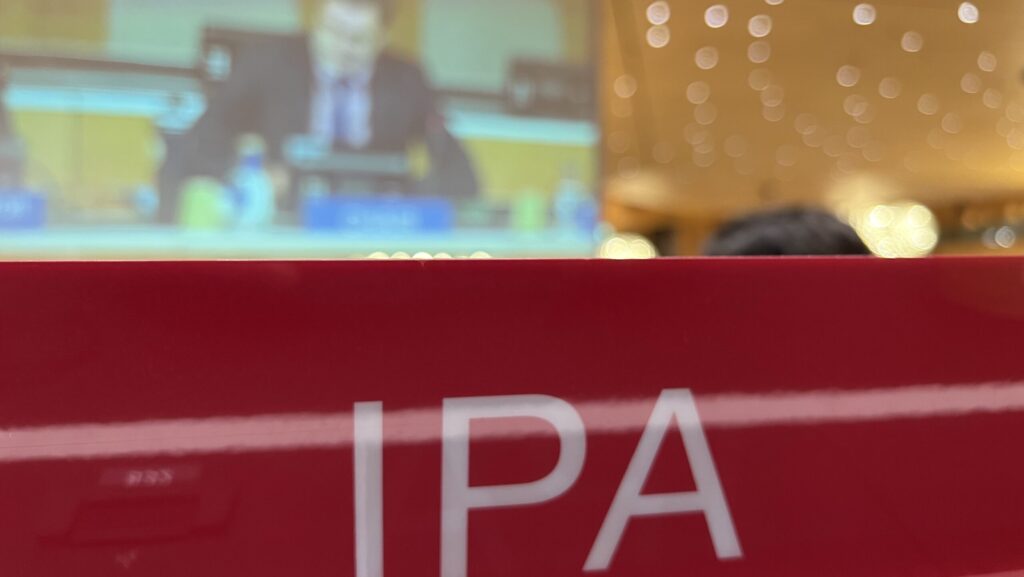The morning centered around the presentation of the Scoping Study on the Practices and Challenges of Research Institutions and Research Purposes in Relation to Copyright (SCCR/44/4), presented by Professor Raquel Xalabarder, who summarized how existing copyright frameworks interact with research activities, especially in digital and online contexts.
Professor Xalabarder acknowledged the good fit of the copyright framework for modern practices and how both direct and collective licenses satisfy many needs. But she also identified challenges, including the enforcement of technological protection measures, potential conflicts between licensing clauses and statutory exceptions, and cross-border issues. The study concluded by emphasizing the need to enhance and clarify national laws related to research, encourage licensing, protect limitations and exceptions, and address cross-border issues to ensure the harmonious coexistence of copyright and research.
After the presentation, the Chair opened the floor for questions, with interventions made by numerous countries and NGOs welcoming certain aspects of the study, but querying others.
Among her answers Prof. Xalabarder stated: ‘We cannot get rid of territory reality of copyright laws. This is very much what maintains and sustains our international copyright system’ as well as ‘let’s not also forget that limitations and exceptions have to be designed and implemented in a manner that is compatible, that does not prejudice the legitimate interests of authors and rights holders.’
Among the rightsholder organisations present, EWC, STM and the IPA took the floor. IPA underlined the importance of a robust copyright framework that protects the rights of creators and publishers, encouraging vigilance and balance when considering exceptions and limitations. IPA Secretary General, José Borghino stated:
‘The International Publishers Association welcomes this scoping study and thanks Professor Xalabarder for her broad analysis of the practices of research institutions and research purposes and how those relate to copyright.
We welcome the up-front acknowledgement in the report of the time-tested international copyright framework and the three-step test as a tool to assess the impact that exceptions and limitations have on markets for published works.
We welcome the recognition that copyright, and the exclusive rights it accords, enables the development of licenses for new uses.
The study also identifies challenges. We do not recognize some of these challenges as problems with the international copyright framework, but rather as problems of local or regional implementation in certain markets and regions.
We also have other areas where we disagree with the report and would welcome exchanges with Professor Xalabarder or the Secretariat for clarification and enhancement.
My question, therefore, is a procedural one: will we have further opportunities to make concrete suggestions for clarifications and improvements to the report? And if so, when?’
The chair confirmed that comments could be submitted to the WIPO secretariat and that the deadline and any further details would be confirmed in the Chair’s summary at the end of the SCCR.
With the morning session closed, the side event of the day was hosted by the International Federation of Film Producers Associations (FIAPF), titled ‘Copyright: a Key Incentive for Sustainable & TV Content Production Enterprises.’ The speakers from Ethiopia, Scotland and Nigeria shared their perspectives on ‘the challenges involved in building sustainable audiovisual content enterprises in the audiovisual space.’ The speakers were Mrs Tigist Kebede, from Habeshaview (Ethiopia), Mr Naysun Alae-Carew, from Blazing Griffin Group (UK), and Mr Ibukonolouwa Adebara, fromPUNUKA Attorneys / Solicitors (Nigeria). Kebede and Alae-Carew emphasized the role that copyright and the protection of the rights of creators played in the growth of their creative projects. They underlined that the creation of these projects ‘can only be done sustainably if the creative entrepreneurs driving this high-risk process can rely on a meaningful copyright legal framework.’
The afternoon resumed in plenary with the United States presenting its revised document ‘Objectives and Principles for Exceptions and Limitations for Libraries and Archives’ (SCCR/26/8, now SCCR/44/5).’ Likewise, the African Group’s Draft Proposal for the Implementation of the Work Program on Exceptions and Limitations was presented and followed by a brief round of comments from Groups and NGOs.
The discussions then moved into informals for more free discussions on the tabled documents and how they may fit into the workplans of future SCCR meetings. Those discussions finished in informals with the expectation of plenary discussions resuming on day 3 to look at the remaining agenda items.

